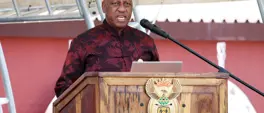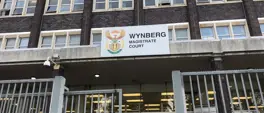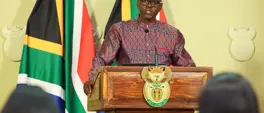Gauteng government says it's on track with settling e-toll debt
Thabiso Goba
14 July 2024 | 11:30Earlier this year, government officially scrapped e-tolls and said the debt owed to the South African National Roads Agency (SANRAL) would be divided between the National Treasury and the provincial government.
JOHANNESBURG - The Gauteng government says it is on track with settling its e-toll debt, with the first payment expected to be made in June.
Earlier this year, government officially scrapped e-tolls and said the debt owed to the South African National Roads Agency (SANRAL) would be divided between the National Treasury and the provincial government.
The electronic tolling systems were introduced to Gauteng roads in 2013 as a way for the government to repay SANRAL for the improvement of freeways in the province.
In a media briefing on Sunday morning, newly appointed Gauteng Finance MEC Lebogang Maile said the provincial government was making progress in securing the R13 billion loan needed to settle its part of the e-toll debt.
"We are speaking to various financial institutions and discussions are at an advanced stage, even in that regard we will make an announcement once one of the institutions agrees especially to finance the R4,1 billion of maintenance, but we have got everything sorted out. We have got different options on our table that we are looking at.”
STATE-OWNED BANK
Despite facing a decline in revenue collection, the Gauteng government’s newly elected administration says it is moving ahead with the establishment of a state-owned bank.
The idea of a state bank was first flouted by Premier Panyaza Lesufi in 2023.
Since then, the provincial government has commissioned an R4 million due diligence report around the legal implications of establishing a provincial-owned bank.
Mailed said the bank was part of a long-term strategy to diversify the provincial government’s revenue stream.
“One of the key objectives of this bank will be investing in projects characterised by low private sector investments and high social returns. The number of micro and informal businesses in South Africa is around 3,3 million with more than half of this being in Gauteng. Almost 20% of the country’s total employment is through the township economy.”
Newly appointed Gauteng Finance MEC, Lebogang Maile, is hosting a media briefing to outline the key priorities of the 7th provincial administration.
— EWN Reporter (@ewnreporter) July 14, 2024
Maile will also speak on the Gauteng’s budget and the state of the provincial economy. TCG pic.twitter.com/ipxg6yz6DW
Trending News
More in Politics

16 December 2025 13:30
President Ramaphosa reflects on the cost of political violence as South Africa marks Reconciliation Day

16 December 2025 12:11
Reconciliation Day: Unresolved past conflicts threaten stability, warns Premier Ntuli

16 December 2025 08:40
FF Plus slams City of Cape Town’s R180m N2 security wall plan











